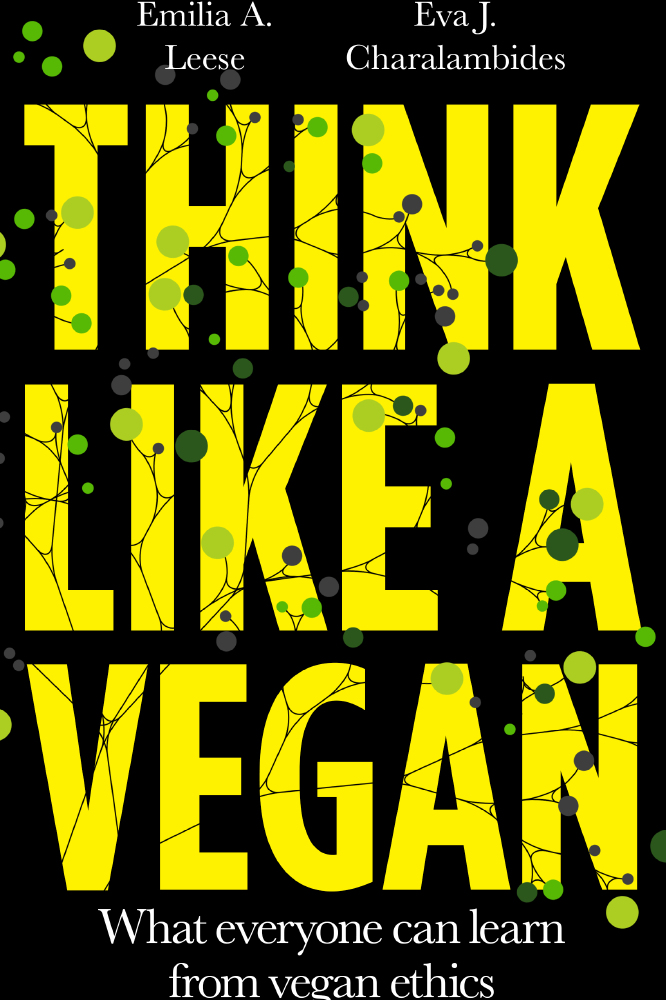When someone asks ‘Why go vegan?’ we can’t just hand them a book or a flyer and hope for the best. Similarly, when we need to figure out how the ethics of veganism might influence our decisions, we also need something practical. These are our top seven lessons on how vegan ethics fit in all aspects of life. We hope you find them a helpful starting point.

Think Like A Vegan
1. Justice – The basic fairness principle is to accord the same moral treatment to everyone, unless there’s a morally relevant reason to justify treating someone differently. Based on this, vegans accept animals into the same moral sphere as humans with respect to fundamental rights, such as the right to live and the right to be free from ownership as another’s property. We all belong to the animal kingdom and all animals, including humans, aren’t objects. We’re all sentient creatures. All animals have needs, wants, fears, abilities, intelligence, skills, social habits and emotions, which they demonstrate in ways like, and different from, humans. There are no morally relevant differences between us to justify our using animals as we currently do.
2. What would be the answer in a human context? – Sometimes, navigating the basic fairness principle with respect to animals can be tricky. Whenever we find ourselves being asked about the human use of animals, or how to frame a response to an ethical question involving animals, we ask ourselves this question. The focus of the answer should be on the aggrieved or oppressed group, not the oppressor or perpetrator of the harm. In short, we believe animals have the right to live, just as people do. Also remember, rejecting speciesism is analogous to rejecting all other forms of oppression; we understand we owe fundamental rights of equality to those who are superficially different to us. Differences of colour, ethnicity, sex, gender, size, sexual orientation, age, ability or religion are morally irrelevant when it comes to deciding who has fundamental rights – they’re inherent to all of us, including animals.
3. Feminism – Females of other species are exploited for their reproductive system, for no other reason than they’re female. If we can’t stop objectifying and oppressing female animals, how can we expect full and genuine change for women? Nonhuman animals are vulnerable and deserve inclusion in terms of feminism, fairness and the fundamental right not to be exploited as an object.
4. Race – One of the most exploited groups of workers are those in animal agriculture, including those working in slaughterhouses. A very large number are ethnic minorities, people of colour, migrants or others in vulnerable situations. If we care about race, migration and ethnicity issues, then veganism is one fitting response to those concerns.
5. Environment – Animal agriculture is responsible for a vast array of environmental problems, including a significant proportion of greenhouse gases. Conservatively, it’s 14.5%. A fuller analysis shows animal agriculture contributing 51% of greenhouse gas emissions. Fertiliser and animal faeces runoff cause dead zones in the ocean. Most of the agricultural land is used for cultivating crops for animal feed, which is also the principal cause of deforestation and land degradation. And the plastic in the sea is mainly from discarded fishing equipment. All aspects of life on earth have been affected by animal agriculture.
6. Health – We don’t need, at any age or stage, to eat animal products to be healthy or have delicious, nourishing and even indulgent meals. Well-respected medical and dietary institutions agree being vegan is healthy at any stage in life. It only takes a little time with any internet search engine, or a recipe book, to find how to cook even the simplest vegan meal.
7. Cost – If we’re concerned about how to think about poverty and veganism then we need to address both, and acknowledge one doesn’t preclude the other. Vegetables, grains, pulses and many fruits aren’t expensive (although nuts can be). Overall, plant foods are cheaper than animal products, especially with respect to the long-term health and environmental impacts that cost more than anyone is prepared to pay.
Each of these concepts may start longer conversations, and that’s a good thing. To change people’s minds, we must show them a new way of thinking. To do that effectively, we must feel confident in, and comfortable with, our own thinking. We need a clear understanding of our beliefs, the courage and confidence to share them with others, and the compassion to recognise others aren’t that different to us.


Emilia A. Leese & Eva J. Charalambides are the authors of Think Like a Vegan: What everyone can learn from vegan ethics, published by Unbound, London (2021). These are the seven key takeaways from their new book…
Tagged in Vegan

